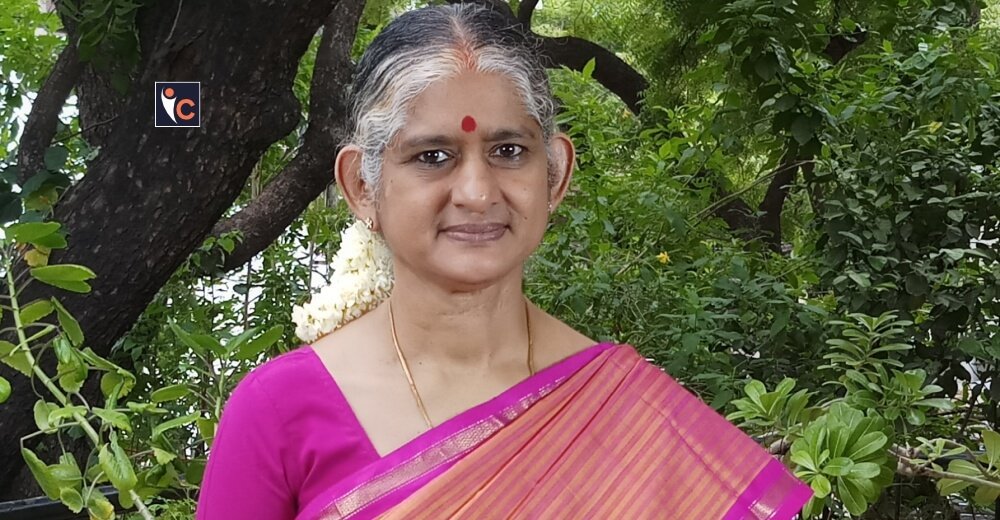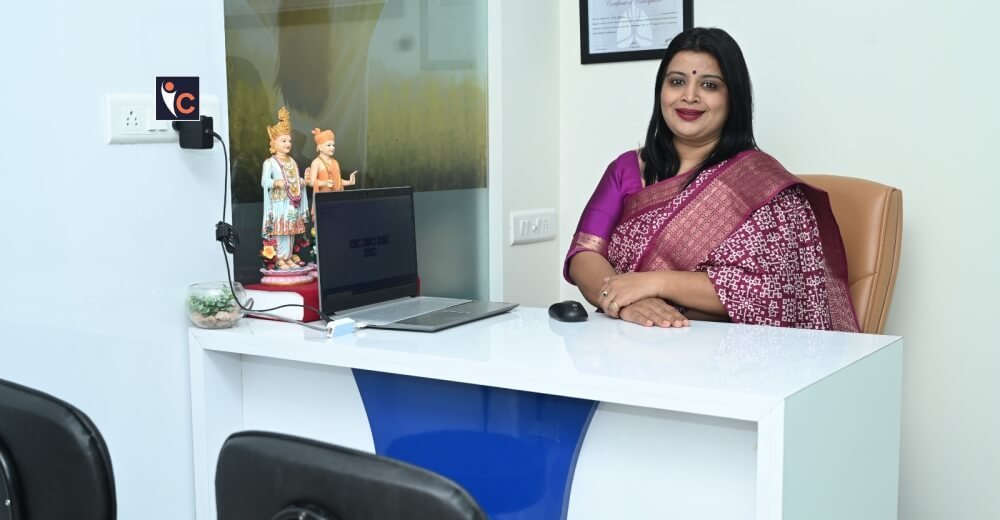“Food is meant to nourish, not punish.” This philosophy drives Ruchitaa Mahesshwari, an innovative nutritionist and the Founder of Healthy Mantra. Living in a world obsessed with quick fixes, she has transformed weight loss and wellness by creating customized, sustainable nutrition plans that prioritize health without sacrifice.
A Certified Diabetes Educator, PCOS expert, and recipe designer, Ruchitaa believes that healthy eating should be simple, enjoyable, and practical. Her approach is not about extreme diets or intense workouts—it’s about making small, meaningful changes that fit into everyday life.
What makes her different is her passion for food and her belief that it can heal when consumed the right way. As a foodie herself, she knows that eating healthy shouldn’t feel like a punishment. That’s why she creates delicious, customized meal plans that help people not just lose weight, but also manage health conditions, feel more energetic, and build lifelong healthy habits.
Through Healthy Mantra, she has helped thousands across India and beyond take charge of their health with science-backed, easy-to-follow nutrition plans. With her expert guidance, eating well is no longer about giving up your favorite foods—it’s about enjoying them the right way for a healthier, happier life.
Let’s delve into the interview details below!
How has the field of nutrition evolved in India since you started your career?
The field of nutrition in India has evolved drastically since I started my career, and the change continues to accelerate. People are now becoming more conscious about their health and making informed choices. For example, many have started reading food labels before buying items, which has become a basic but crucial step in grocery shopping. Instead of mindlessly picking up packaged foods, consumers are more aware of what they’re consuming, which has positively impacted their eating habits.
Moreover, there has been a shift towards embracing balanced diets, with a growing preference for whole foods, organic options, and plant-based diets. The awareness around lifestyle-related diseases like diabetes, hypertension, and obesity has risen, and more people are seeking personalized nutrition advice and sustainable solutions.
Overall, nutrition is now seen as an essential part of everyday life, and people are actively investing in their health, looking for credible and science-backed information, and striving for long-term well-being rather than quick fixes.
What do you consider to be your most significant professional achievement to date?
I consider my most significant professional achievement to be the transformation in my clients’ lives—when they truly embrace and enjoy the healthy lifestyle, they’ve learned from me and continue to implement it long-term. The greatest reward is seeing them not only achieve their goals but also sustain those results over time, without feeling deprived or restricted. It’s incredibly fulfilling when clients share how they’ve gained more energy, improved their medical conditions, or reversed health issues like diabetes or PCOS through simple, sustainable changes.
Another proud achievement is the success of the unique weight loss programs I’ve created, which have impacted people globally. The fact that my approach to nutrition, which emphasizes ease, customization, and enjoyment, has resonated with so many individuals is a testament to the power of personalized care. Being able to reach and help people from different parts of the world, and seeing them improve both physically and mentally, is an accomplishment I hold.
Lastly, spreading nutrition awareness and contributing to a shift in how people view food and health has been incredibly rewarding. Teaching clients how to make informed, mindful choices and empowering them to take control of their health has been one of my greatest achievements in this field.
Can you share a challenging case you’ve worked on and how you approached it?
One of the most memorable and challenging cases I worked on involved an 80-year-old gentleman who came to me with extremely high creatinine levels of 6.5 mg/dL. He had almost lost hope but wanted to give it a try and see if I could help.
I carefully assessed his lifestyle, medical history, and dietary habits, and then worked with him to create a tailored nutrition and lifestyle plan. Focusing on kidney-friendly foods, hydration, and reducing unnecessary strain on his kidneys, we took a holistic approach that combined proper nutrition with manageable lifestyle changes.
Within just four months, his creatinine levels dropped dramatically from 6.5 mg/dL to 2.3 mg/dL. This case stands out as a testament to the power of a personalized, well-rounded approach to health. It was incredibly rewarding to see him regain his health and confidence, proving that with the right guidance, even the most challenging cases can show remarkable improvement.
How do you stay updated with the latest nutritional research and trends?
I stay updated with the latest nutritional research and trends by consistently reading peer-reviewed journals, attending webinars, and participating in conferences and workshops. This helps me ensure I’m always in the loop with the newest findings and evidence-based practices.
Ultimately, I believe that staying curious and open to new knowledge is key to growing both as a nutritionist and as a lifelong learner.
What role do you think nutritionists and dieticians play in addressing India’s public health challenges?
Nutritionists and dieticians play a crucial role in addressing India’s public health challenges, especially with the rise in lifestyle-related diseases like diabetes, obesity, hypertension, and malnutrition. They act as educators, helping individuals understand the importance of balanced diets, proper portion control, and making healthy, informed food choices. By promoting nutrition awareness, they empower people to take control of their health and prevent or manage chronic conditions.
Moreover, nutritionists and dieticians are instrumental in designing personalized, sustainable meal plans that cater to the diverse dietary needs across different regions and age groups in India. They also work closely with healthcare providers to ensure that nutrition is integrated into treatment plans for various medical conditions, improving recovery and long-term health outcomes.
In a country like India, where cultural practices and food habits vary widely, nutritionists can bridge the gap by tailoring solutions that are culturally sensitive, practical, and easy to follow. By working at both the individual and community levels, they are key to driving change and fostering a healthier future for the nation.
How do you balance traditional Indian dietary practices with modern nutritional science in your recommendations?
Balancing traditional Indian diets with modern nutritional science is key in my approach. I highlight the benefits of traditional foods like dal, sabzi, and roti, while emphasizing portion control, healthier cooking methods, and balanced nutrition. Modern science helps me focus on nutrient density, healthy fats, good proteins, and fiber, while also advising moderation in sugar, salt, and processed foods. This combination ensures my clients enjoy their cultural food while making it more sustainable and aligned with contemporary health needs for long-term well-being.
What advice would you give to young women aspiring to become nutritionists or dieticians in India?
My advice to young women aspiring to become nutritionists or dieticians in India is to stay curious, committed, and open-minded. Nutrition is a dynamic field that requires constant learning and staying updated with the latest research. Pursue your education from reputable institutions but also focus on gaining practical experience by working with clients and learning from real-world situations.
Understand the cultural and regional diversity of India, as dietary needs can vary greatly. Be compassionate, patient, and focused on providing sustainable solutions rather than quick fixes. Also, never underestimate the power of building strong relationships with your clients—listening to their unique needs and concerns is just as important as the science behind nutrition.
Most importantly, don’t be afraid to carve your own path. The field is evolving rapidly, and there are countless opportunities to make an impact, whether through clinical practice, wellness programs, or community outreach. Stay passionate, and remember that you’re helping people lead healthier, happier lives.
The Double-Edged Sword of Food Choices in India
Everything comes with pros and cons. On one hand, many people are actively trying to improve their lifestyle, but on the other hand, India is witnessing a rapid increase in obesity, heart attacks, and other medical issues—even among children. This alarming trend is largely due to poor dietary choices, with unhealthy food options like gulab jamun, dosa, pani puri, ice-cream and coke, egg, omelettes being sold openly. Additionally, the popularity of social media videos showcasing these foods is influencing more people to indulge in them.
To address these rising health concerns, it’s crucial for the government health department to take stronger action to regulate food vendors. One important step would be ensuring that only licensed food sellers are allowed to operate. The government should introduce strict checks on the ingredients used and the nutritional value of the products being sold. Vendors should meet health and safety standards before being granted a license. By enforcing these regulations, we can significantly curb the rise of lifestyle diseases and promote better health across the nation. This approach will ensure that the food available to the public is not only safe but also supports a healthy lifestyle, helping to reduce the burden of medical conditions in the long run.





